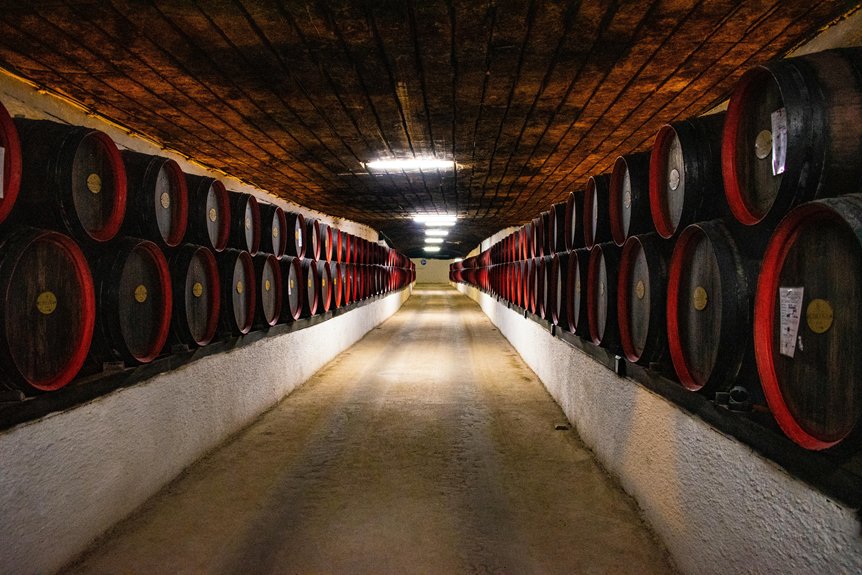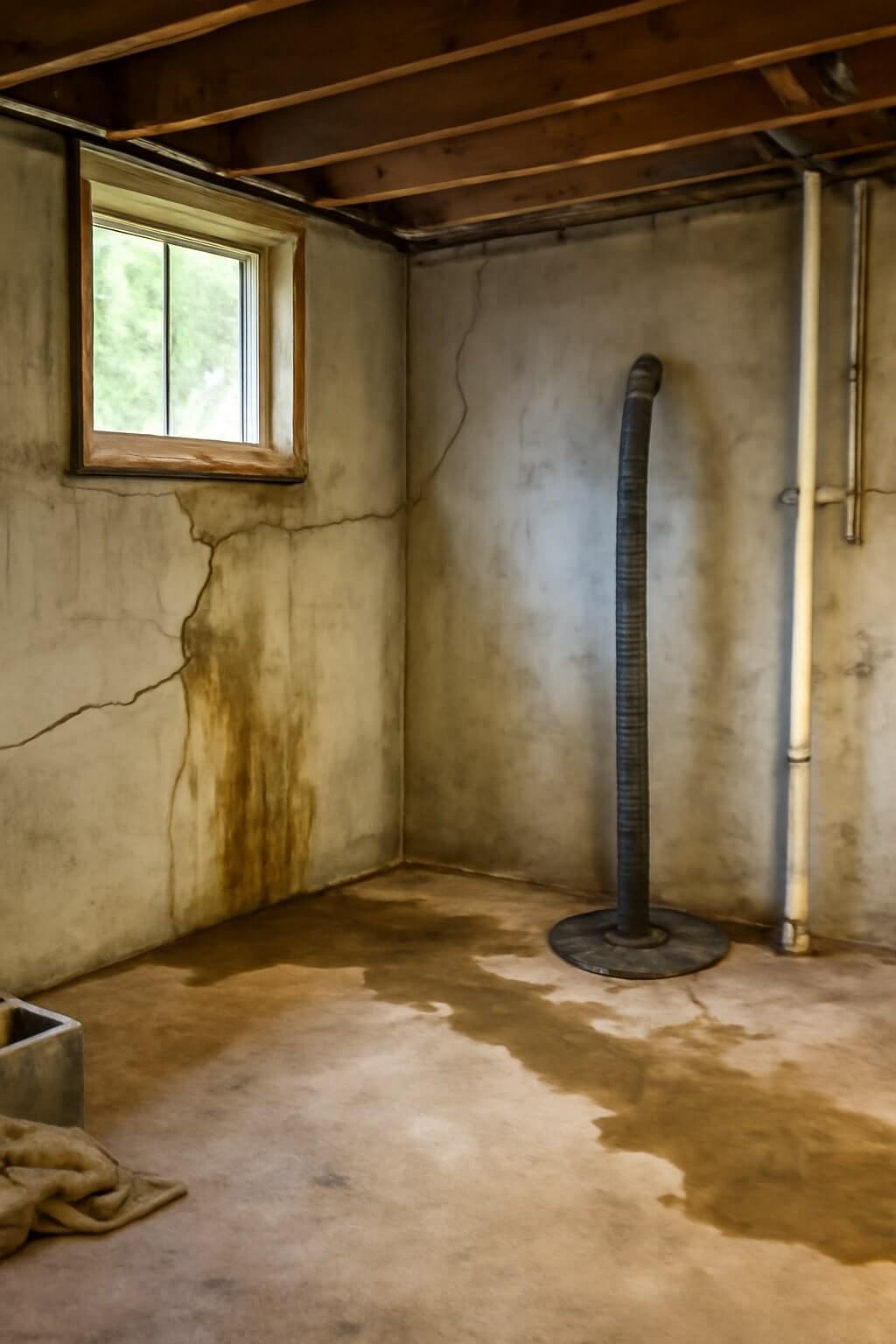When it comes to ICF basement waterproofing, selecting the right products is essential for ensuring a dry and healthy space. Various membrane solutions, liquid waterproofing options, and effective sealants play important roles in moisture prevention. Understanding how these products work together can greatly enhance your basement’s resilience against water intrusion. Let’s explore the specific types of membranes and coatings that can provide the protection you need.
Key Takeaways
- Membrane Waterproofing Solutions: Use polyethylene, PVC, or modified bitumen membranes for effective moisture barriers in ICF basements.
- Liquid Waterproofing Products: Apply acrylic, polyurethane, or epoxy liquid solutions for seamless coverage against water intrusion.
- Polyurethane and Acrylic Crack Fillers: These materials effectively seal cracks, blocking moisture entry and enhancing durability in ICF basements.
- Elastomeric Coatings: Utilize these flexible coatings to provide an additional protective layer against water infiltration while improving energy efficiency.
- Sump Pumps: Install sump pumps to prevent water accumulation, ensuring a dry environment and protecting against mold and structural damage.
Understanding ICF and Its Benefits for Basements
When you consider building a basement, using Insulated Concrete Forms (ICF) can greatly enhance its durability and energy efficiency.
ICF benefits include superior structural integrity, as the forms create a solid barrier against external pressures. The ICF insulation considerably reduces thermal bridging, leading to lower energy costs throughout the year.
Additionally, ICF walls provide excellent soundproofing, ideal for quiet living spaces. The forms are resistant to moisture, pests, and mold, contributing to a healthier indoor environment.
The Importance of Waterproofing for ICF Basements
Although ICF structures offer inherent moisture resistance, proper waterproofing is vital to guarantee long-term performance and prevent potential issues.
Effective waterproofing methods help manage moisture control, protecting your basement from water intrusion and mold growth. By employing techniques such as drainage systems, sealants, and exterior insulation, you not only enhance the durability of your ICF basement but also improve indoor air quality.
Neglecting waterproofing can lead to costly repairs and structural damage over time. Investing in robust waterproofing solutions guarantees your basement remains dry and comfortable, ultimately safeguarding your home’s value and integrity for years to come.
Membrane Waterproofing Solutions
When considering membrane waterproofing solutions, you’ll encounter various types of membrane materials designed to suit different environmental conditions.
Understanding the installation techniques is essential, as the effectiveness of these membranes hinges on proper application.
Let’s explore the options available to guarantee your ICF basement remains dry and protected.
Types of Membrane Materials
Understanding the various types of membrane materials is essential for effective basement waterproofing solutions. You’ll find options like polyethylene, PVC, and modified bitumen, each providing unique benefits.
Polyethylene membranes offer excellent moisture resistance and membrane durability, making them a popular choice. PVC membranes are flexible and resistant to weathering, while modified bitumen combines asphalt with polymers for added strength.
When considering membrane installation, ascertain you choose a material compatible with your foundation’s structure and local climate. Proper selection and installation of the right membrane can greatly enhance your basement’s waterproofing effectiveness, preventing moisture-related issues down the line.
Installation Techniques Explained
To guarantee successful membrane waterproofing, it’s vital to utilize proper installation techniques tailored to the specific membrane material and site conditions.
Start by preparing the surface, making sure it’s clean and dry. Select appropriate waterproofing materials, such as self-adhering membranes or liquid-applied systems, and follow the manufacturer’s guidelines meticulously.
Employ installation methods like overlapping seams and sealing edges to prevent water ingress. Attention to detail is important; use proper tools for adhesion, and confirm consistent thickness across the application.
Finally, conduct a thorough inspection after installation to verify there are no gaps or defects that could compromise the waterproofing integrity.
Liquid Waterproofing Products
Liquid waterproofing products offer a versatile solution for protecting your basement from moisture intrusion.
You’ll find various types of liquid solutions, each with specific application techniques that guarantee effective coverage.
Understanding the benefits of these products can help you make an informed choice for your waterproofing needs.
Types of Liquid Solutions
A variety of liquid waterproofing products are available to effectively protect your basement from moisture intrusion. These products come in different liquid types, each designed for specific application methods. Understanding the options can help you choose the right solution for your needs.
| Liquid Type | Features | Application Method |
|---|---|---|
| Acrylic | Fast-drying, UV resistant | Brush, roller, spray |
| Polyurethane | High elasticity, durable | Spray, trowel |
| Bituminous | Excellent adhesion, flexible | Brush, trowel |
| Silicate | Penetrates substrates, breathable | Roller, spray |
| Epoxy | Chemical resistant, strong bond | Trowel, brush |
Application Techniques Explained
When applying liquid waterproofing products, selecting the right technique can greatly impact the effectiveness of your moisture barrier.
Effective application methods include brushing, rolling, and spraying. Brushing allows for thorough coverage in corners and edges, while rolling provides an even application over large surfaces. Spraying is efficient for covering extensive areas but requires proper safety equipment.
Always verify the surface is clean and dry before application, as contaminants can compromise product effectiveness. Follow the manufacturer’s guidelines regarding thickness and drying times to achieve ideal results.
Proper technique not only enhances adhesion but also extends the lifespan of your waterproofing solution.
Benefits of Liquid Products
Choosing the right application technique sets the stage for realizing the full benefits of liquid waterproofing products. One of the primary liquid advantages is their seamless application, which forms a continuous barrier against moisture.
This guarantees ideal application efficiency, eliminating potential weak points found in traditional methods. Liquid products can easily adapt to complex surfaces, providing thorough coverage in hard-to-reach areas.
Additionally, they often cure faster than solid alternatives, reducing project timelines. These characteristics make liquid waterproofing an excellent choice for ICF basements, guaranteeing long-lasting protection and enhancing the structural integrity of your foundation against water intrusion.
Drainage Systems for ICF Basements
Effective drainage systems are essential for preventing water intrusion in ICF basements, as improper management can lead to significant structural damage and mold growth.
A well-planned drainage design directs water away from your foundation, utilizing methods like French drains and surface grading for ideal water diversion. You should consider installing perforated pipes around the perimeter of your basement to collect and redirect groundwater.
Properly configured downspouts and gutters also play a vital role in minimizing water accumulation.
Sump Pumps and Their Role
Sump pumps play an essential role in maintaining a dry environment in ICF basements. They help prevent water accumulation, protecting your home from mold and structural damage.
Here are four key aspects to take into account:
- Sump Pump Types: Choose from pedestal, submersible, battery backup, or water-powered pumps based on your needs.
- Installation: Proper placement in a sump pit is critical for peak performance.
- Sump Pump Maintenance: Regularly inspect and clean the pump, check the float switch, and verify proper drainage.
- Power Supply: Think about a backup power source to prevent failures during storms.
Investing in a good sump pump is essential for long-term protection.
Sealants and Coatings for Added Protection
While you may have installed a sump pump to manage water intrusion, incorporating sealants and coatings can offer an additional layer of protection for your ICF basement.
Different sealant types, such as polyurethane and acrylic, effectively fill cracks and prevent moisture penetration.
Sealants like polyurethane and acrylic are essential for filling cracks and blocking moisture intrusion.
For coating applications, consider waterproof membranes or elastomeric coatings that provide a barrier against water infiltration while allowing for some flexibility.
These products not only enhance your basement’s durability but also improve its overall energy efficiency.
Maintenance Tips for Long-lasting Waterproofing
To guarantee your ICF basement remains waterproof over time, regular maintenance is essential.
Implementing preventive measures and conducting routine inspections can help you identify potential issues early.
Here are four tips to promote long-lasting waterproofing:
- Inspect gutters and downspouts: Verify they’re clear and directing water away from your foundation.
- Check for cracks: Regularly examine walls and floors for new cracks that may develop.
- Monitor humidity levels: Use a dehumidifier to maintain ideal moisture levels in your basement.
- Reapply sealants: Refresh sealants every few years to maintain their effectiveness.
Stay proactive to protect your investment!
Conclusion
In conclusion, effective ICF basement waterproofing relies on a combination of membrane solutions, liquid products, and proper drainage systems. By utilizing high-quality materials like polyethylene, polyurethane, and reliable sump pumps, you can create a robust barrier against moisture. Don’t forget the importance of regular maintenance and inspections to guarantee your waterproofing remains effective over time. By taking these steps, you’ll not only protect your investment but also create a healthier living environment for you and your family.




